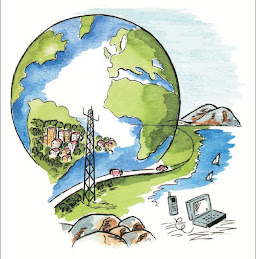Ericsson Profits Rise
Ericsson has reported that its Q2 pre-tax profits rose to SEK9.3 (US$1.4) billion from SEK8.3 billion in the same period a year ago. Sales totaled SEK47.6 billion in the second quarter, just missing a SEK47.8 billion forecast. Gross margin was stable sequentially and up 0.4%-points year-over-year. The operating margin increased sequentially, excluding Sony Ericsson, as a result of increased sales and a completed streamlining of the former Marconi operations.
Networks
The 7% year-over-year sales increase in Networks was driven by a 6% growth in mobile systems. Fixed networks showed even higher growth, also excluding the acquisition of Redback. The supply chain restructuring of optical transmission is done, which completes the integration of former Marconi products.
The demand for GSM continues with new delivery records and during the quarter Ericsson delivered its millionth GSM base station. Growth is primarily driven by new network deployments and capacity expansions in high-growth markets. Basically all WCDMA network rollouts are HSPA-enabled. Upgrades are ongoing in previously deployed WCDMA networks, laying the foundation for the accelerated migration to mobile broadband.
The company says that the combination of Redback and Ericsson's global sales organization is generating considerable business opportunities and several new contracts have been announced.
Professional Services
Sales in Professional Services grew by 11% year-over-year and continue to outpace the market. Growth in local currencies amounted to 14%. Growth was slower in network design and systems integration. The high activity level in previous quarters has now translated into increased network rollout activities, reported in Networks. Operating margin was stable.
Managed services grew by 21%, or 24% in local currencies, and recent key wins confirm our strong lead. A new agreement with Oi in Brazil, as well as earlier announced agreements with Orange in the Netherlands and Belgium, Vodafone and KPN in the Netherlands, and the European-wide spare part contract with Vodafone, will start to contribute to sales in the third quarter. Ericsson is managing networks that together serve more than 135 million subscribers worldwide.
Multimedia :
Growth was 6% year-over-year. As previously indicated, Multimedia sales will vary between quarters. Sales, excluding Tandberg Television, were down sequentially, affected by timing of completion of several larger revenue management projects. Operating margin was negatively affected as a result.
During the quarter, Mobeon and Drutt were acquired and a public offer was made for LHS, a world leader in post-paid billing systems. Tandberg Television is consolidated from May 2007. During the quarter, Tandberg secured new contracts from broadcasters and operators who are launching IPTV, HDTV and on-demand interactive video services.
Regional Overview
The market in Western Europe was soft. This development is primarily a result of ongoing operator consolidation in Italy and shared networks discussions in UK, putting investment decisions on temporary hold. A 3G/HSPA contract was signed with Vodafone Spain. Other significant contracts were announced with Telefonica Germany and Wind in Italy. New managed services contracts were announced with Vodafone and KPN in the Netherlands.
In Central and Eastern Europe, Middle East and Africa, the high business activity continues, but the large new network rollouts and expansion projects create sales fluctuations between quarters. A number of new contracts have been awarded in the quarter, especially in the Middle East, and major rollouts continue in sub-Sahara. GSM sales to Russia are lower while 3G preparations are ongoing.
Asia Pacific's sales development was very strong and primarily driven by continued expansions in China, India, Bangladesh, Japan and South East Asia. A US$1 billion GSM expansion agreement with China Mobile was signed. New GSM business with Orascom in Bangladesh was awarded. A US$2 billion contract, Ericsson's largest to date, has been signed with Bharti Airtel for GSM/EDGE network infrastructure.
Latin America is recovering as expected. Sales during the quarter were mainly driven by GSM rollouts and expansions in most markets, however, Brazil and Mexico are still slow. 3G rollouts are accelerating throughout the region.
In North America, the sales gap versus last year is closing. HSPA is now available in more than 165 AT&T markets, the demand is strong and rollout continues. During the quarter, an agreement was reached with AT&T for their "U-verse" IP broadband rollout. This was a breakthrough for Ericsson in next-generation networks and a vote of confidence in our expanded product portfolio and capabilities.




